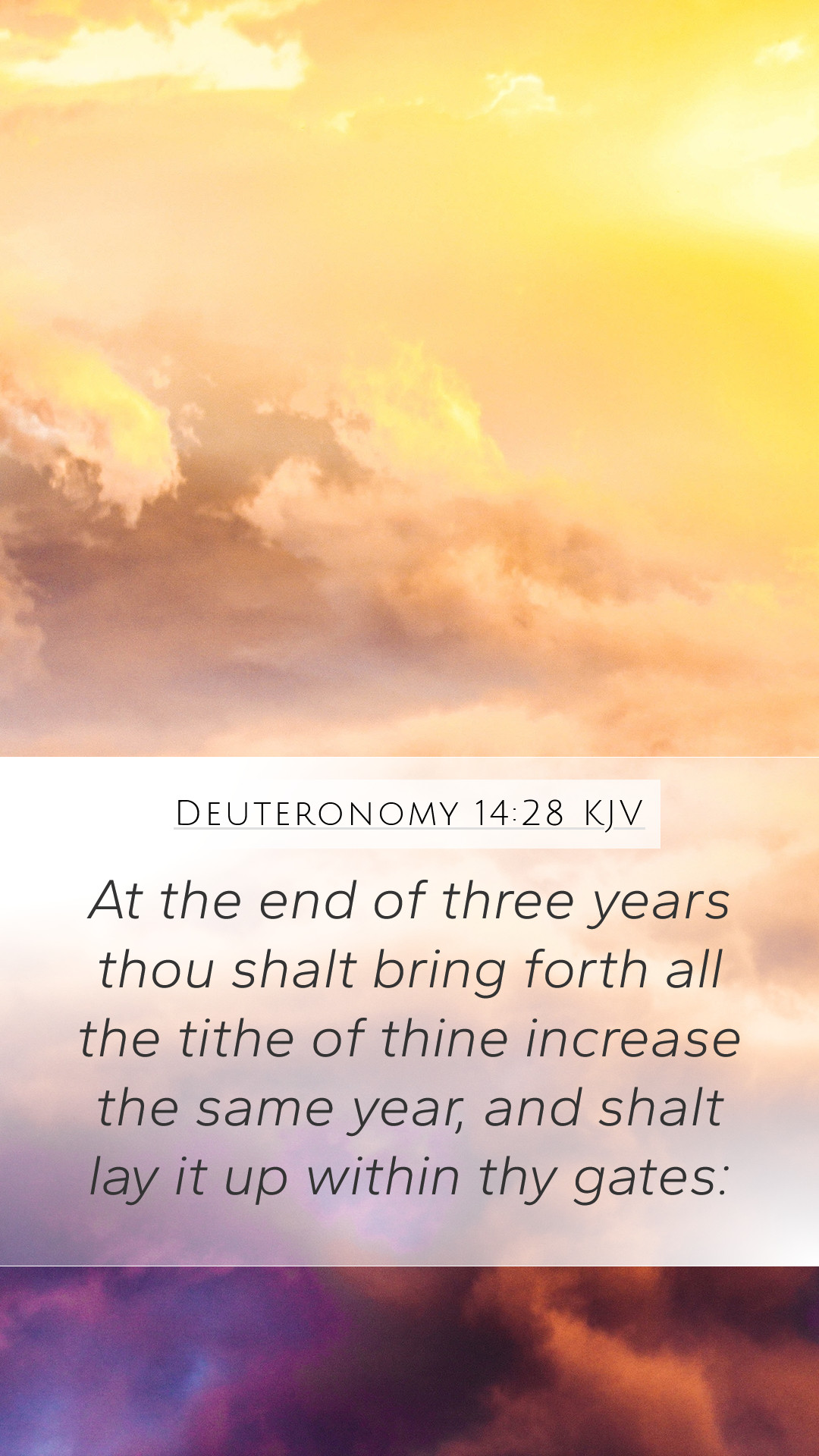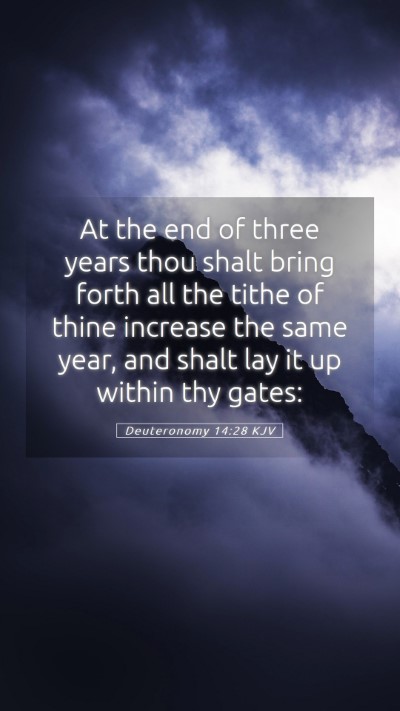Bible Verse Explanation: Deuteronomy 14:28
Verse: "At the end of every three years thou shalt bring forth all the tithe of thine increase the same year, and shalt lay it up within thy gates."
Deuteronomy 14:28 addresses the practice of tithing in the Israelite community, emphasizing the importance of giving a portion of one's agricultural produce for the benefit of the less fortunate and the Levites. This verse highlights both the cyclical nature of giving and the need for community support.
Overview of Tithing in Biblical Context
Understanding this verse requires recognizing the broader context of tithing in ancient Israel. Tithing, or giving a tenth of one's produce, was a commandment intended to support the priests, Levites, and the poor. The practice reflects a deep theological principle of stewardship and reliance on God’s provision.
Commentary Insights
- Matthew Henry’s Commentary: Henry emphasizes the spiritual significance of tithing, noting that it acknowledges God's sovereignty and provision. He points out that regular giving fosters a heart of gratitude and community charity.
- Albert Barnes’ Notes: Barnes elaborates on the structure of Israelite society, explaining that the welfare of the Levites, who had no inheritance of land, depended on the contributions of the people. He interprets this command as a means to ensure the sustenance of religious services and community support.
- Adam Clarke’s Commentary: Clarke provides historical context, suggesting that this practice of tithing every three years relates to the agrarian calendar and reflects the Israelite reliance on God for their harvest. He further notes that the tithe serves a dual purpose of supporting both the clergy and the needy.
Key Themes in Deuteronomy 14:28
- Obedience: The command to tithe represents obedience to God's laws, which were intended for the good of the community and the individuals within it.
- Generosity: Regularly setting aside a portion of one’s harvest fosters a spirit of generosity and communal responsibility.
- Provision for the Needy: This practice illustrates the importance of taking care of those in need, a reoccurring theme in Scripture.
Application of the Verse Today
For modern readers, Deuteronomy 14:28 prompts reflection on personal giving and community support. Christians may consider how this biblical injunction can translate into practical action in their lives, encouraging regular contributions to support their local churches, charities, and aiding individuals in need.
Cross References
- Malachi 3:10: Calls believers to bring the whole tithe into the storehouse, echoing the importance of tithing.
- Leviticus 27:30: Establishes the foundation for the tithe, affirming that a tenth of the produce belongs to the Lord.
- 2 Corinthians 9:7: Encourages believers to give generously, following the principle of cheerful giving in the New Testament context.
Further Study and Resources
Engaging in Bible study groups and utilizing Bible study tools can enhance understanding of scripture, particularly difficult passages involving tithing and generosity. Resources such as Bible study guides and online Bible study platforms can provide additional insights into the contextual and theological significance of verses like Deuteronomy 14:28.
Conclusion
In conclusion, Deuteronomy 14:28 serves as a vital reminder of our responsibility towards God and community. Through understanding scripture like this, believers can foster a spirit of generosity, compassion, and dedication to God’s work within their communities. Reflecting on biblical exegesis and seeking the meaning of Bible verses aid individuals in deepening their faith and practical application of scriptural principles.


